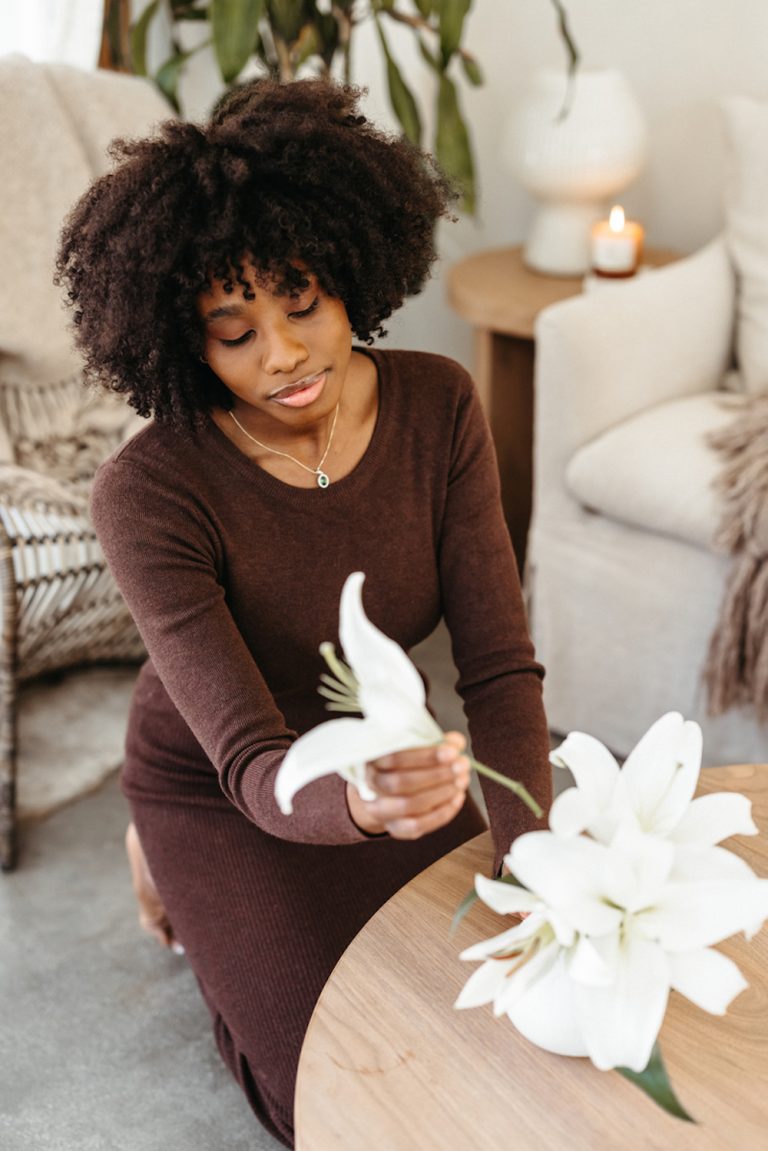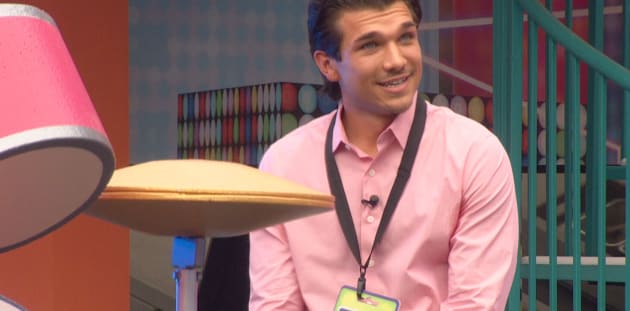Sports, sci fi shows, and Stephen King were the most consistent topics of conversation for my father and I. Of the many hours I spent alone with him as a teenager, I don’t remember talking about much else. Perhaps this reveals us as one-dimensional and simple, or maybe even a little stereotypical (rough-around-the-edges Dad, lesbian daughter), but I think it saved my life.
My dad is a paradox. Growing up, he blubbered at videos of soldiers reuniting with their children enough times for me to know he had feelings. But to ask him what exactly those feelings were was useless— it would have been like asking a magician to reveal the secrets to his tricks. In the most difficult years of my life, his reluctance to unpack emotion became essential. I craved privacy throughout high school, but found total solitude daunting. My brain barked too loudly. I needed a companion. Someone willing to talk, but never insistent upon it.
I needed my dad.
Many of my friends had a different breed of dad, more similar to Danny Tanner from Full House or Phil Dunphy from Modern Family. These fathers were chock full of timely anecdotes and leading questions for their troubled teenage offspring.
Phil and Danny would have annoyed the shit out of me.
I struggled my way through high school, and my personality soured. Up until then, I had been described as happy-go-lucky. Spunky. Somewhere around age fourteen, I discovered my attraction to women. I became furious at the world, my friends, my family, but mostly I became furious at myself. The more my mom and close friends begged to understand me, the more incapable of explanation I grew. I shoved myself deep into the closet and boarded up the door. I mourned the dream of a normal life. The last thing I wanted was a sweater-vest-wearing Danny Tanner poking his head in to wonder if I wanted some cocoa and a chat.
I needed a dad like Joel Miller.
Miller is the protagonist of the action-horror video game (and recent HBO television adaptation) The Last of Us. The game begins 20 years after a zombifying disease called Cordyceps has virtually eradicated humans from the Earth. Players move through the game as Joel smuggles fifteen-year-old Ellie across the country to a doctor attempting a vaccine. Ellie is the key: she is immune to Cordyceps. Joel and Ellie’s relationship develops through long walks and car rides across a desolate and dangerous zombie-populated United States. The silence between them is interrupted only by Joel’s gruff teasing or Ellie’s terrible puns. There are no confessions of the heart or therapeutic dumps regarding the trauma they’ve experienced. Neither of them wants that. Their circumstances are too urgent.
I became furious at the world, my friends, my family, but mostly I became furious at myself.
Midway through their trek, Joel falls five floors down an elevator shaft. For a few beats, it’s unclear to Ellie whether or not he is alive. When he comes to and is able to ask if she’s okay, she screams down the shaft with a simple, “No! You scared the shit out of me.” Elaboration is unnecessary.
When I was seven, I was hospitalized for appendicitis on Father’s Day. My family had been celebrating with mine and my dad’s favorite: sticky blueberry pancakes drenched in maple syrup. My mom noticed I hadn’t taken a bite. As my stomach pain grew progressively worse throughout the day— so agonizing I was unable to stand without help—she rushed me to the hospital. She tends towards the dramatic, and my memories from the hospital are tinted in blue. I remember her gripping my hand hard enough to break it in half, her voice pealing with panic in every interaction with the doctors. I thought I was going to die.
My dad showed up a few hours later after my grandparents got to the house to watch my sisters and brother. He grabbed one of the braids in my hair and shook it before sitting beside my mom next to my bed. My mom relaxed, as did I.
“You know, if you wanted special attention this bad, you could have just asked,” he said, still sitting bedside when I woke from surgery. His hair flattened on his skull from a baseball cap he’d laid on the side table. “This is so like you, trying to steal my shine on Father’s Day.”
I giggled, shrieking that I would never do such a thing. The searing incision on my hip became an afterthought. He carried me to and from my bed every day for two weeks.
With every year of high school that passed, I became more and more certain I would never come out of the closet. I didn’t know any queer adults, and feared a life of loneliness. There was the social aspect, too.
I remember her gripping my hand hard enough to break it in half…
The word “lesbian” circled my sports team locker rooms; it was the ultimate insult. It degraded one as equal parts masculine, predatory, and disgusting. Sometimes, girls would shorten it to just “L.” The most troubling aspect of this was its double meaning: she’s such an L was used both as an insult to assumedly heterosexual girls, and as an actual descriptor for the few girls at our school who were publicly queer. In neither circumstance was the connotation positive.
Two girls in my grade began dating, one of them a lacrosse teammate of mine. She was outcast immediately. Girls in the locker room changed in bathroom stalls or with their chests facing the walls when she entered the room. I kept my head down and silently thanked my own brilliant foresight to remain closeted. It was keeping me safe. I dated boys, wore thick layers of makeup, and lied about what kind of TV shows, music, and books I was interested in. I worried constantly that any tipping of my hand, any confession as to my true interests and passions, would clue them in to what I really was.
The paranoia grew exhausting. Eventually, I withdrew. I stopped going to parties, seeing friends, and even listening to music (I once listened to a Tegan and Sara song and was horrified to realize that people could see what I listened to on Spotify). It was just easier that way. At least I wouldn’t have to wonder whether or not anything I said could have been interpreted as gay.
As I slowly dropped off the social scene, I began to spend a bizarre amount of time with my dad. Most days during my junior and senior year of high school, I drove home for lunch so I could eat Greek salads coated in hot sauce dressing with my dad on side-by-side TV trays while watching the nuclear apocalypse drama The 100.
While my mom and friends wanted to know what was wrong with me—why I’d changed and when I’d be better—all he wanted to know was what I thought of Stranger Things’s second season. And somehow, even through our complete lack of nuanced conversation, he knew me better than anyone in the world. I didn’t have to crack the door open for him to see through. It was relieving. We were like those nature photographs of unlikely animal friendships. Crocodiles granting free rides to baby birds on their backs across the swamps. The mentally unwell teenage lesbian watching March Madness with her bearded grumpy father.
At least I wouldn’t have to wonder whether or not anything I said could have been interpreted as gay.
Towards the end of their journey, Joel and Ellie’s surrogate father-daughter relationship deepens. Their bond of reluctant necessity thickens into something more substantial. For the first time we see that Joel views Ellie as more than a cure or a traveling companion: he loves her. On Ellie’s sixteenth birthday, Joel takes her to an abandoned science museum. Once, in passing, Ellie has mentioned her love of outer space, and an impossible desire to become an astronaut.
Joel works magic. He leads her to an upper level of the museum and into an old space shuttle replica in the astronomy exhibit. Joel hands Ellie a cassette tape he has scoured the Earth for, a dusty, oversized astronaut helmet knocking around loosely on her head.
“Happy birthday, kiddo,” he says. It’s an audio recording of a shuttle lift off. The two close their eyes with the tape playing between them, and they are transported miles away from the problems their world has to offer. It’s the best present Ellie could have been gifted: an escape hatch. Best of all, she never had to ask for it.
Beyond just his ability to distract me from my fears, my dad shares this uncanny ability with Joel. He knew how to find me without ever needing a map, and it is a joy to be found.
Christmas used to be one of my least favorite times of the year. It was a giant spotlight on all of the gaps between who I knew myself to be, and who those I held close knew me to be. To be fair, it was the only version I’d ever presented to them. Dresses, crop tops, eyeliner pens, and lacy pink underwear sat unused in my closet year after year just to be donated months later. It was a waste of money and heartache.
My senior year of high school, my dad handed me his Christmas gift. It was a thin envelope with my childhood nickname Mooglie scribbled on the back in pencil. Inside were two tickets to see the adaptation of Stephen King’s Misery on Broadway. He had printed them out on two grubby sheets of copy paper and shoved them inside the envelope. I teared up. He shrugged.
“Thought it could be cool. Seats aren’t great, but looked decent,” he said.
One week later, we got dressed up (him in dark jeans and a button up, me in a black dress and ballet flats), and drove into Manhattan just the two of us. We ate at Carmine’s before the show. He let me steal sips from his wine, and we split chicken parm and a plate of spaghetti. I am positive we talked of nothing but football—the NFL playoffs were in full swing. I can barely remember if the play was good or not. It is still the best Christmas present I’ve ever received.
There is no good explanation for the dynamic between my dad and I or Ellie and Joel. Why is it that this man who at times felt void of interiority was able to understand me so well? I don’t know. Why do Joel and Ellie seem to just click? They don’t even have the benefit of a biological connection.
Why is it that this man who at times felt void of interiority was able to understand me so well?
One could argue that it’s a trauma bond that ties Ellie and Joel together so closely. They need each other. Or, more realistically, Ellie needs Joel. She voices this multiple times throughout the game, begging him not to die because his death will spell uncertainty for her own life. I said in the beginning of this essay that I think my dad saved my life, and I meant it. During the years I had myself convinced there was no choice but to be closeted, I often considered an alternative. I wondered if maybe the torture of feeling so awful about myself just wasn’t worth it. My mind whispered that I could make it all go away, that it would be easier than falling asleep. The volume on these voices hushed when I was with my dad, and I wonder if like Ellie, I was so drawn to him because my survival depended on it.
But I’m in favor of a different theory. Perhaps for some people, a version of a soul mate comes in the form of a parent. My dad loves to brag that I was the only one of his four children who, as a toddler, ran to him when I was hurt or too tired or just needed a hug. The rest of them preferred my mom. He says this with so much pride, and I hold this small and insignificant fact of my past very close to my chest.
Joel and Ellie eventually reach a small settlement that provides refuge for a while. Their lives normalize ever so slightly. They get jobs. Ellie comes to terms with her queerness, and through snippets of her diary, players of the game understand she is struggling to tell Joel. He discovers it himself upon seeing Ellie kiss her love interest, Dina, at a town hall dance.
“I don’t know what that girl’s intentions are,” Joel says of Dina during a scene interspersed between gameplay. He and Ellie are leaning on the porch banister of the house he’s co-opted, not facing one another but rather staring out in the same direction.
“But I know she’d be lucky to have you.”
All Ellie can do is nod.
During my freshman year of college, I began secretly dating a friend of mine, a woman named Ali. It was exciting; I’d never been in love before. I talked to my dad constantly about Ali. I told him about the types of things she was up to in the geo-chem department, or how we were planning to go rock climbing that upcoming weekend, never disclosing the true nature of our relationship. He met Ali once after one of my lacrosse games, and asked her lots of questions about geodes and earthquakes and what she thought of the opposing team’s offense.
A month before the end of the school year, he sent me an email. The subject line was “Couple Things.” It sounded like a grocery list (he is one hundred percent the type of man to email a grocery list).
The body of the email was very short. It was a list of reasons explaining his suspicions that I was in fact more than just friends with Ali.
He ended the email with a paragraph.
“I truly hope my suspicions are correct (I am pretty sure they are) and wanted to send you this email so you didn’t need to keep things from me,” he wrote.
“I also don’t need to have some big awkward talk with you and very much respect your privacy. That said, I do very much love talking to you about anything and everything in your life. If I’m correct, which I really think I am, Ali is a lucky girl.”
Ali is a lucky girl. It wouldn’t have meant as much coming from anyone else. No one besides him knew me well enough for it to count.
It was exciting; I’d never been in love before.
Men like Joel and my dad are far from perfect. Their lack of willingness to engage in direct conversation isn’t always the best course of action. Joel makes some key mistakes in the game, mistakes with dire consequences that could’ve been avoided had he been willing to speak openly with Ellie. To say Joel is flawed would be a massive understatement; he commits mass murder on an incomprehensible scale against both zombies and uninfected humans alike. While he’s never killed anyone, my dad’s tendency to avoid asking hard questions often left my mom to carry the emotional burdens of our family. Like Joel, he has a my-way-or-the-highway attitude, and interrupts almost every conversation he is a part of (the latter being one of the more unfortunate traits I’ve picked up from him). People are multidimensional and we all suck at least a little.
I never seem to notice, though. It irritates my mom, the pedestal I’ve placed my dad on. Dina grows frustrated at times with the passionate way in which Ellie adores Joel, but I know Ellie can’t help it. It isn’t just gratitude for her life or a trauma bond from all she’s been through with Joel by her side. He’s fluent in her language, and he never had to be taught how to speak it.























































